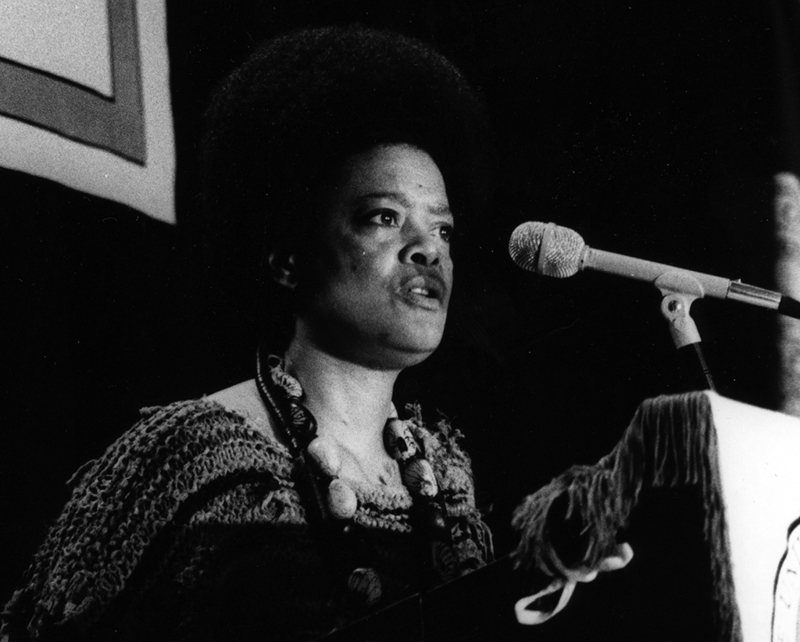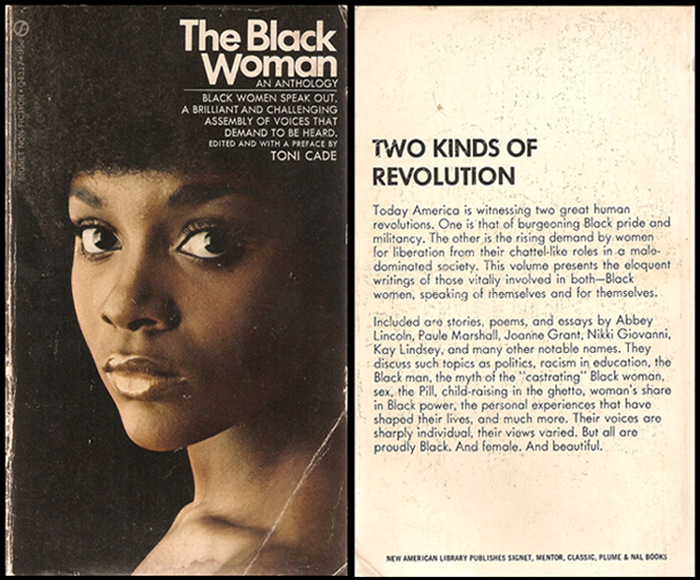A Black Women's Conference and Toni Cade Bambara
Of all her memories of the Big Green, the Black women’s conference Powell organized with her classmates is among the most vivid. In April 1973, Powell recalls planning a three-day conference called Watubibi: Beautiful Black Woman, Essence of Life. Most of the speakers and performers that were brought in were Black women. On the first night, a Thursday, the main event was a dancer performing an interpretive dance of the Black woman from Africa, followed by a dramatic dance of Africa from the present day on Friday. There were panels of Black alumni, Black art and books on display, all creating a promising occasion. Powell also remembers having members from the Labor Department's Office of Equal Employment Opportunity in attendance, as well as the photographer Chester Higgins. The keynote speaker of the weekend was Toni Cade Bambara, a professor from Rutgers University there to discuss her latest book, The Black Woman [1970]. I can only imagine the conference’s impact. After a year of being on campus, Black women organized an event of this scale to bring the Black experience to the Woods for themselves, but also to educate their classmates.
The Black Woman is described as, “A collection of early, emerging works from some of the most celebrated African American female writers who remain strong when the weight of a world filled with racism and gender discrimination wants to drag them down.” Alice Walker, Audre Lorde, Nikki Giovanni, and Paule Marshall are a few of the writers in the collection. It is regarded as one of the first works of Black feminist literature. Other literature by Bambara include Gorilla, My Love, The Salt Eaters, and These Bones Are Not My Child. Along with being a decorated author and college professor, Bambara was also a social activist, and documentary-maker. Bambara dedicated her life to her community, her community’s liberation, and her artistry. She raised hard questions, and called upon the most marginalized in the country to answer. She was a pioneer in Black feminism and Black feminist literature, and a pillar in the Black community.
"She gave a living cast to our real life struggles... She wrote of Black people, women, men, children, as workers, mothers, wives, husbands, sons and daughters, revolutionaries, militants, community organizers, nationalists, their families, their participants, the onlookers, bystanders... innocent or otherwise. She created a cast of the real people of our world. - Amiri Baraka
"Her work leaned toward multiculturalism and multivalent voices and her life experience and vision contributed mightily to her art, which has greatly influenced the direction of contemporary scholarship in the areas of feminism, womanism, transnationalism, intersectionality, Afro-futurism, and post-Black aesthetic." - Thabiti Lewis"


